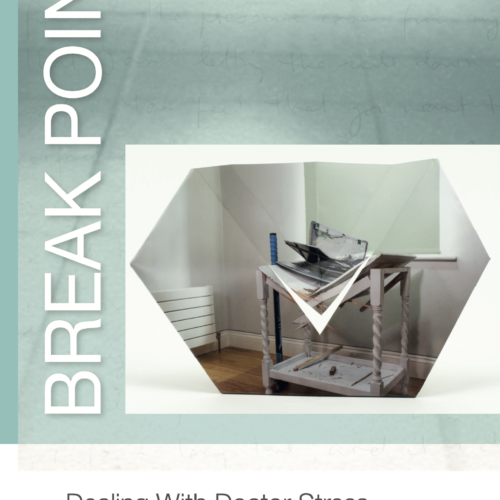
Student Stories: Morris Gallagher
I’m Morris, an NHS GP working in the northeast of England. I’m an experienced primary care researcher, substance misuse practitioner, and have developed groups for people with chronic pain (pain-net.com). I also appraise and support other doctors for NHS England. Retired during the pandemic after a period of shielding, stress, and burnout, but back enjoying working two days a week as a GP.
Previously I’ve completed undergraduate and postgraduate medical degrees which were needed for my careers as a doctor and researcher. This degree is very different as its more about me my passions and interests, which until recently have lain dormant, pushed out by the medical work. I was attracted to this degree because it was part-time, and I could fit the modules around my work. I was also liked the academic content, as I like exploring new ideas and doing research.
I did not expect the challenge that there was to try new things, or to do things differently or better, from tutors. Gradually I was nudged from my biomedical textual approach to research to a more artistic and photographic exploration of visual culture. Initially I was annoyed that I was expected to shoot my images again, but eventually I learnt that the iterative process of shooting, reflection and retaking photographs is normal and essential practice for producing good work. Medical work, family issues, COVID-19 and other illnesses, and periods of fatigue slowed down the degree work, but also surprisingly supplied ideas for projects, such as my hand-made book “It’s not alright” about my daughter’s illness and death.
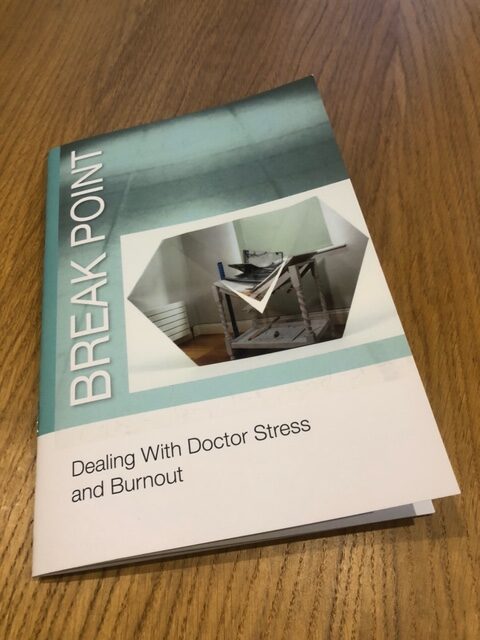
My final year work is a zine targeting help and advice at doctors who think that they might be stressed or burnt out. It is a self-publication and can be bought or downloaded free from my support site https://www.break-point.info. Anyone with work stress would find it helpful. The zine is a marriage of image and text with an interview with a consultant psychiatrist / psychotherapist who treats stressed and mentally unwell doctors. It is a better product because of my collaborations with a mental health charity, zine and web designers, communication and marketing consultants and the distressed doctors who shared their experiences.
I have learnt that tutors know what they are talking about: I try and take their advice. Moira Lovell encouraged me to hand-make photobooks, which I enjoyed, and I have made several for the degree and for others. Les Monaghan for me is a model of what socially engaged photography looks like. In this final year Garry Clarkson has given important strategic advice and direction, some of which I have taken. That has helped me to become responsible for my work and developing my practice.
The degree ‘pushed’ me to develop my ideas and photographic practice. My practice has developed to focus on ‘hidden’ issues in health and social care. I am confident that I can continue to do this or better work in this area where few photographers seem active. I’ve also learnt the importance of peers, collaborators, and critics; my final year work would be less without other people’s help and input.
I have become a photographer. It’s surprising to write that but it’s also true. I have lots of ideas about work that I want to do. Maybe I will do something about finding ‘Hope’ in health care? It’s the antithesis of much of my work https://morris-gallagher.format.com but maybe I and others need that now.
Final advice: Listen to your tutor but make your own mind up. Work with others if you can because you will learn a lot from them. Experiment: tutors love something different! Be yourself in your work even if people don’t quite get it.
|
|



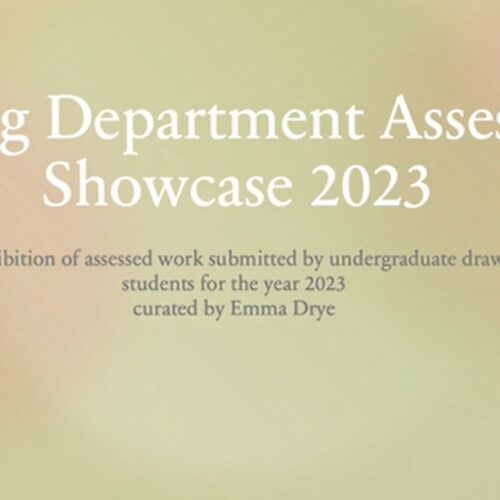
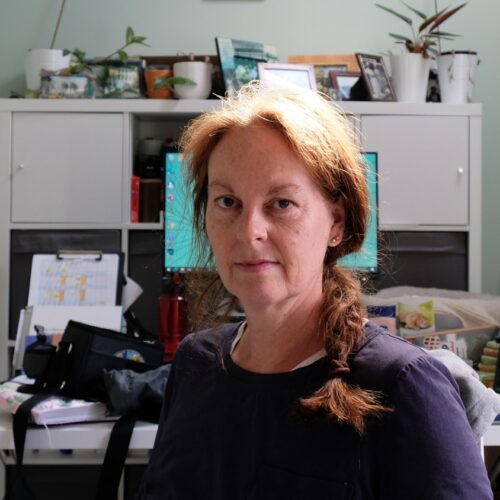
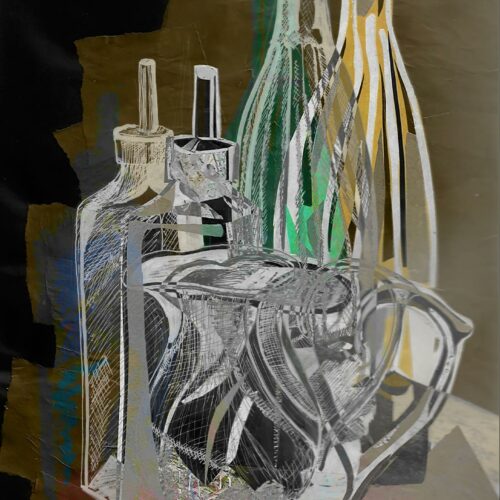
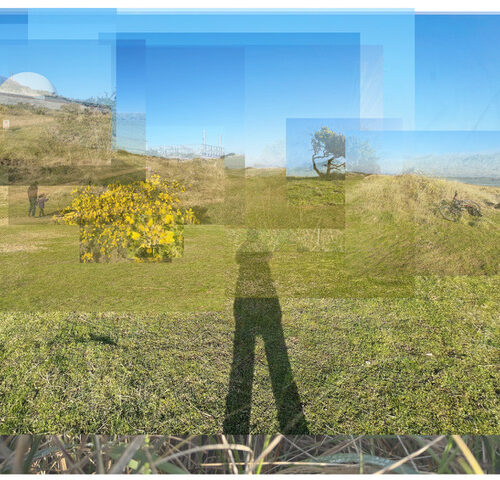
Thank you for sharing your experience about your journey of creativity. I love your last paragraph, I agree with it all.
Thank you, Pamela. I am glad that my story connects with you. Take care.
Such a great post, thanks for sharing Morris. Your portfolio work is so interesting and very powerful. Are you finding the photography gives you a calmer balance in your work life?
Thanks for sharing this Morris, really inspiring to read about your journey and how you’ve integrated such different fields of expertise and experience and ways to work with others. Congratulation on your super and timely project around mental health, and good advice!
Thank you for sharing Morris. Wise words indeed and appreciate the advice. Good Luck with wherever it all takes you next…
Best Wishes
Catherine